Lawyer Specializing in Premises Liability Cases
If you recently suffered an injury due to an unsafe condition or hazard on someone else’s property in Prince William County, you need to speak with a qualified premises liability lawyer as soon as possible. At the Reed law firm, we offer confidential free consultations with a lawyer for premises liability matters. Retaining a lawyer early in the process will assure that legal notice to any responsible parties is made as soon as possible so that potential evidence is preserved.
Premises liability cases tend to be more complicated than other injury cases for several reasons. First, it may be difficult to determine who is legally responsible for the hazardous condition that caused your injury. For example, a slip and fall injury in the lobby of an office building could be the legal responsibility of the property owner, a tenant, a maintenance company, or even a commercial contractor. Second, it may be difficult to identify all sources of potential insurance coverage that may be available for payment. Third and most importantly, the laws surrounding liability for premises liability matters tend to make it more difficult for plaintiffs to prevail in these cases.
As a lawyer with over 20 years of litigation experience, Vanessa Reed routinely handles serious premises liability cases. She has successfully obtained generous settlements for her clients in premises liability matters against big box retailers, grocery stores, and restaurants. You can rely on the Reed Law Firm to put our experience, skills, and resources to work to safeguard your rights, protect your interests, and obtain maximum compensation for your injuries and losses.
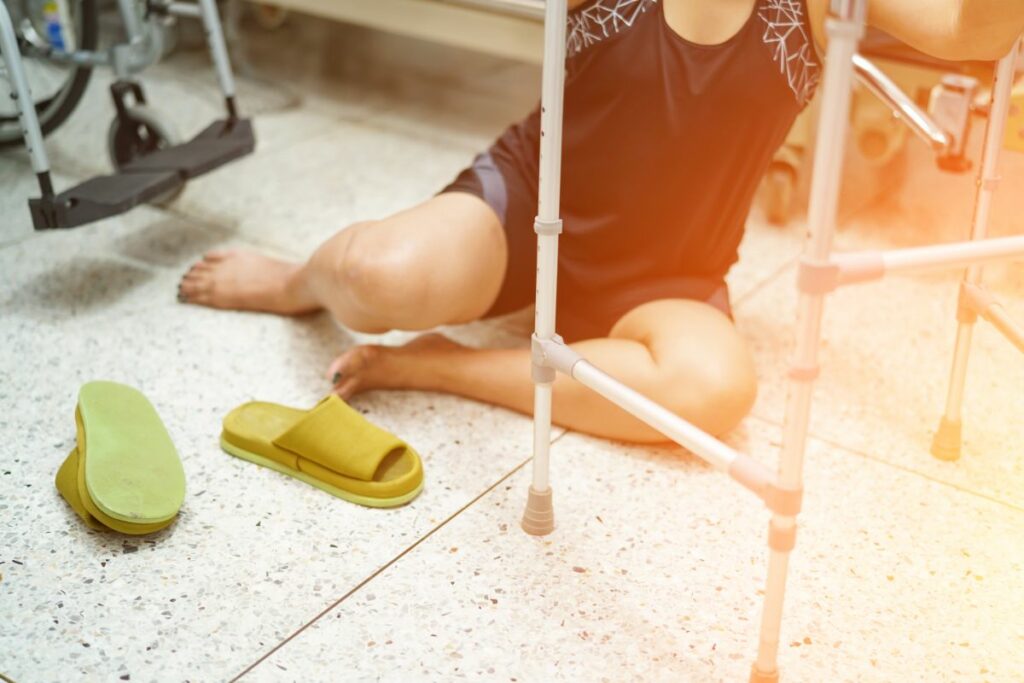
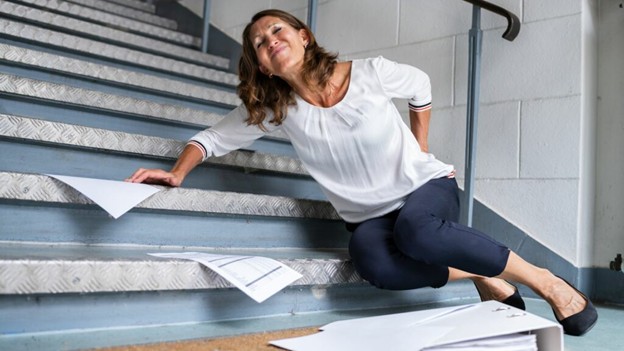
Types of Premises Liability Cases
Some of the most common types of premises liability accidents are slips, trips, and falls. Although the most commonly known type of premises liability case is the “slip and fall” case, there are other types of cases that fall under premises liability, including:
- Inadequate Security: If a person is injured or assaulted on a property due to failure to hire appropriate security, or failure to secure the premises, the property owner or tenant could be liable.
- Swimming Pool Accidents: Public and private pool owners must maintain adequate safety protocols including hiring and training lifeguards, maintaining safety equipment and enforcing safety rules. When these measures are not taken and an injury results, the property owner may be liable.
- Dog Bites: If a dog bites or attacks someone, especially if it’s known to be aggressive, the owner of the premises and the dog owner could be held liable.
- Defective Conditions: Poorly lit staircases and walkways; uneven or broken sidewalks; unlevel tile floors; loose carpeting; malfunctioning elevators or escalators, unmarked holes or any other structural defect upon a premises that leads to injury may support a claim against the property owner.
- Hazardous Conditions: The presence of snow, ice, or any other slippery substance that has not been removed in a reasonable amount of time could support a premises liability action. In addition, obstructed and cluttered aisles or walkways can also create hazards the give rise to legal liability,
What is Premises Liability?
If you are injured on the property of another person or a business, you may be able to pursue a premises liability claim. Premises liability refers to a legal responsibility incurred by a person or entity for injuries that occur on a property that they own or are responsible for maintaining. Examples of places where you could be injured and pursue a premises liability claim include office buildings, parking lots, retail stores, restaurants, or any other business held open to the public. Premises liability also refers to liability for accidents that occur at private residences or on other private properties like farms, open fields or trails.
Your ability to pursue a claim for premises liability depends on how the law views your status at the time of your injury. Essentially, it depends on what you were doing and why you were there. If you are on the property of another for a business purpose, for example shopping in a retail store, your legal status in the property is that of an “invitee.”
If you are on the property for a social purpose, such as at a friend’s house for a party that you were invited to attend, your legal status on the property is that of a “licensee.” Owners and occupiers of property owe legal duties to both invitees and licensees upon their property, although the legal duty owed to each varies.
A greater duty is owed to an invitee than a licensee. The difference between a licensee and an invitee is that an invitee confers a benefit on the landowner. A landowner’s duty to a licensee is different from the duty owed to an invitee, because a landowner does not owe a duty to licensees to look for and discover dangers or defects or to otherwise make the premises safe. Therefore, a landowner owes a greater duty of care to an invitee than he does to a licensee.
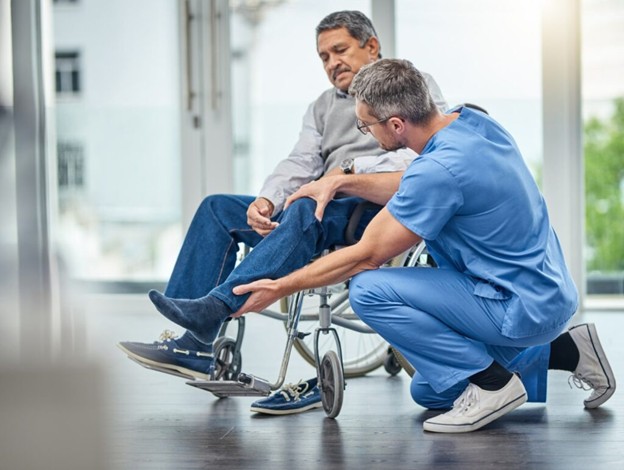
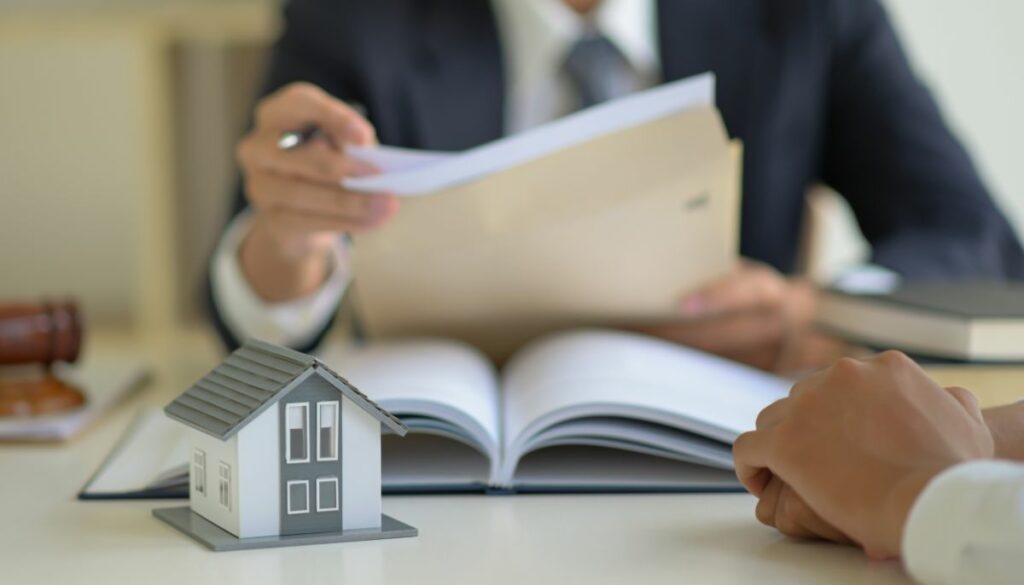
Elements of a Premises Liability Cases in Virginia
In Virginia, a property owner is not strictly liable for a customer or visitor’s safety. To recover compensation in this type of case, the following must be shown:
1. The liable party is responsible for the upkeep/maintenance of the property.
2. They knew, or should have known, about the hazardous condition upon the property.
3. The property owner failed to make the property safe by fixing the hazardous condition, within a reasonable time, or place warning signs to warn of the hazard.
4. The unsafe condition on the property caused the accident.
5. The injured person suffered recoverable damages.
Common Causes of Slip, Trip, and Fall Injuries Include the Following:
- Dim or poor lighting, especially in stairwells, hallways, exterior alleyways, and entrances or exits.
- Failure to provide adequate or necessary handrails at entrances, exits, and on stairs or ramps.
- Broken or loose stairs, or uneven stair treads that are improperly leveled.
- Water, other liquids, or substances, on the ground, creating slippery floors and hazardous walking conditions on the premises. (Note that in cases of temporary hazards, such as a spill that causes a slippery floor in a grocery store, the owner is given a reasonable amount of time to remedy the hazard, or place adequate warning signs.)
- Defective or improperly operating elevators and escalators
- Uneven ground or flooring caused by broken concrete, loose or uneven floor tiles, torn/ripped carpeting, or improperly leveled flooring.
- Tripping hazards upon the ground, such as exposed cords and wiring that are not properly secured or affixed to the floor.
- Obstructed and cluttered aisles and walkways, which pose a tripping hazard.
- Areas under construction, without proper warning signs.
- Building and safety code violations.
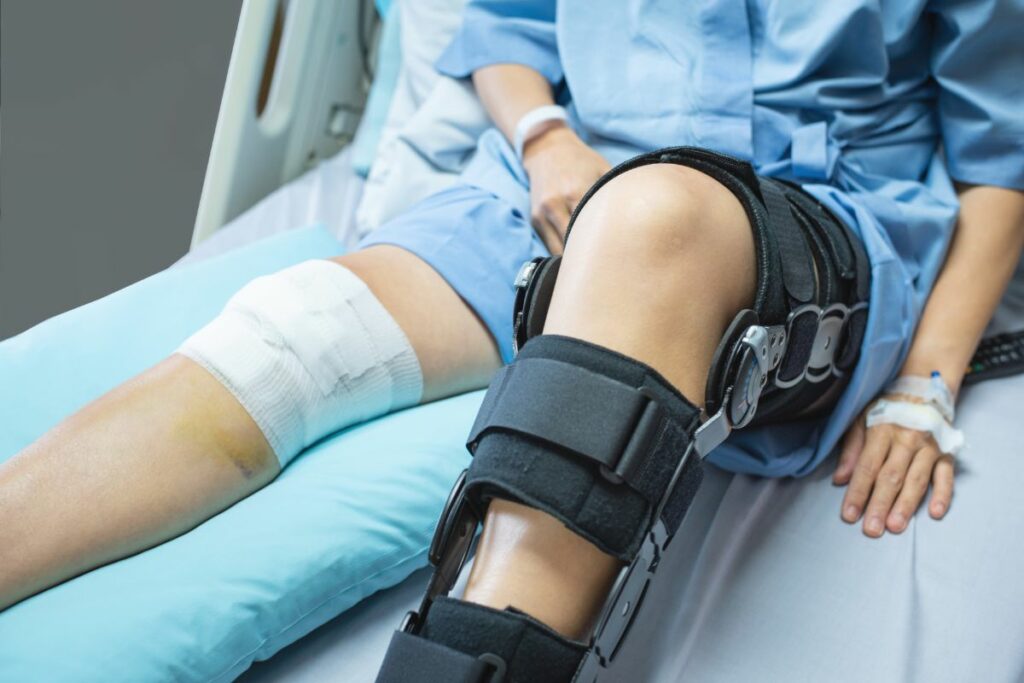
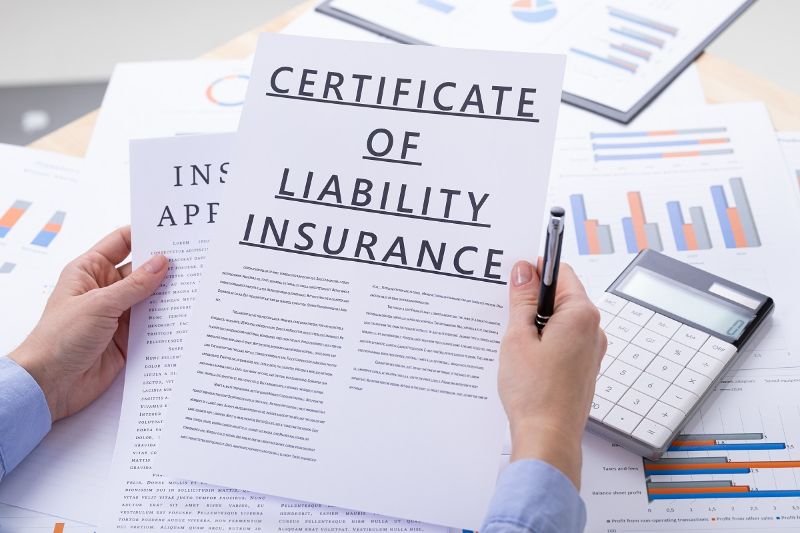
Other Premises Liability Cases Include:
Failure to provide adequate security
Apartment complexes, offices, stores, hotels, and other public places, may be held liable for failing to provide adequate security. Typically this would arise in situations where adequate security could have prevented an assault had adequate security been provided. Similarly, sponsors and organizers of large events, such as concerts or sporting events, may be held liable for accidents and injuries caused by failure to provide adequate security and/or crowd control.
Falling merchandise or debris
Store shelves that have been overstocked, or unsafely stacked, may cause injuries if the items fall onto customers. If this occurs, the store may be held liable. For example, if a shopper is hit on the head by a falling can of soup, while shopping in a grocery store aisle, the store may be liable if the shelves were stocked in poor or dangerous manner.
If you recently suffered an injury as a result of a hazard or unsafe condition on someone else’s property, you need legal representation. We offer free consultations with a qualified premises liability attorney. Call our office today to book your complementary consultation.